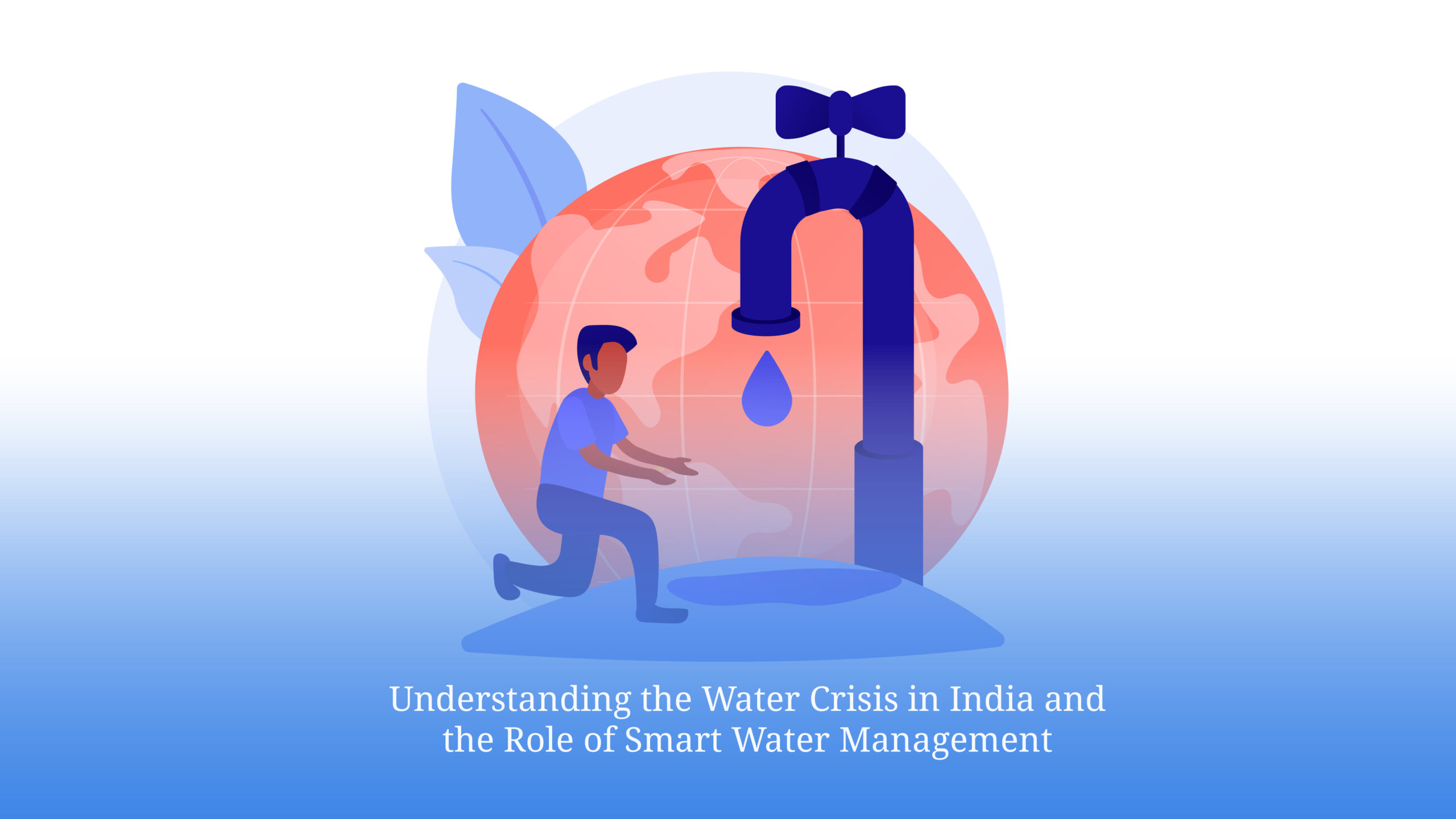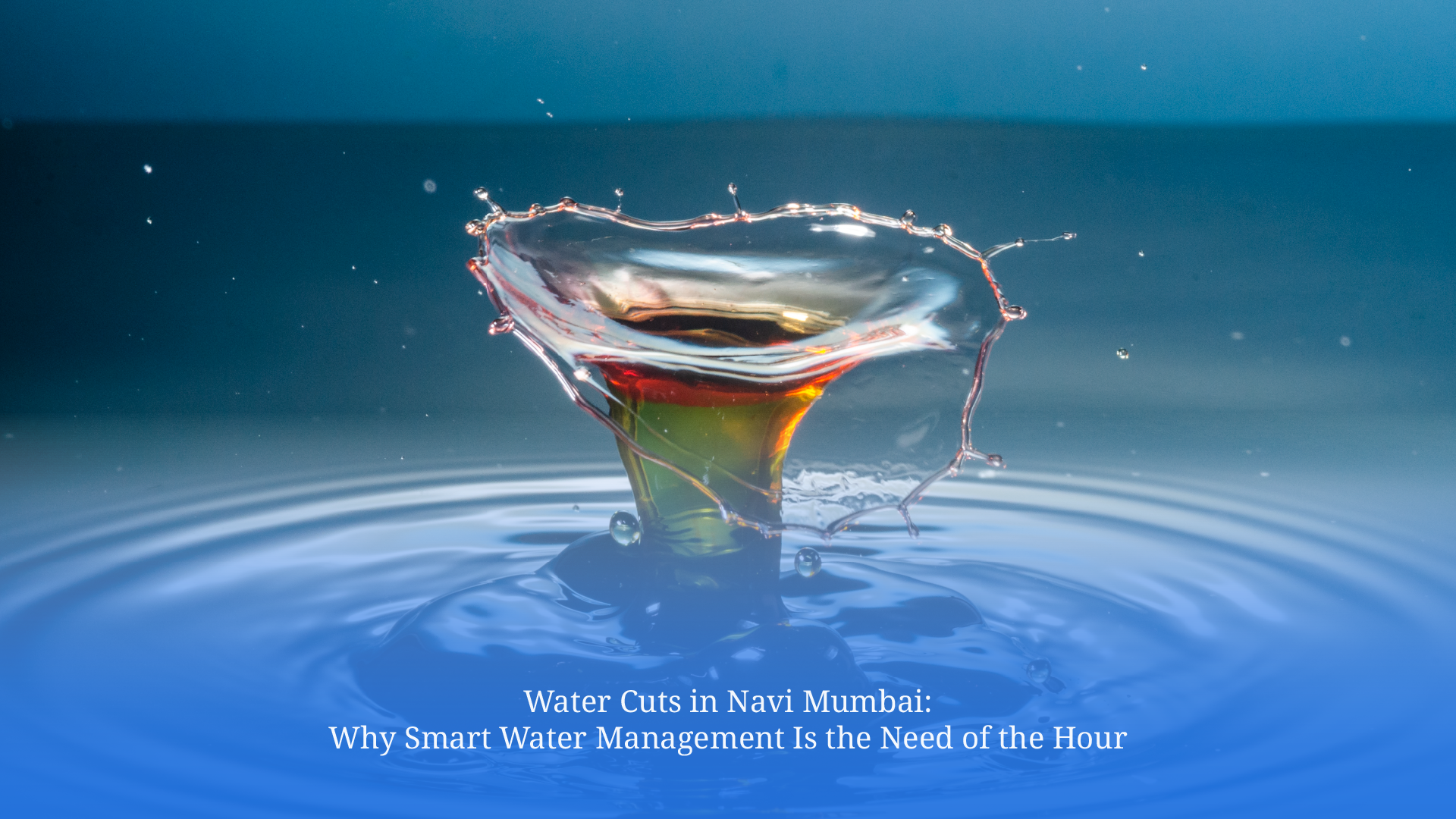Understanding the Water Crisis in India and the Role of Smart Water Management

India is facing a severe water crisis. A combination of rapid urbanisation, climate change, and a growing population has created a perfect storm of water shortages. Millions of people across the country are already experiencing the consequences, and the future looks even more uncertain. However, there is hope.
Smart water management solutions are emerging as a lifeline, offering the potential to transform how we manage this precious resource. Let’s take a closer look at the water crisis in India and how smart technology can play a pivotal role in managing water more efficiently.
Exploring Water Scarcity in India
Water scarcity in India is not a new issue. However, its effects are becoming more widespread and severe. It’s a long-term problem that extends beyond short-term droughts or temporary shortages. More than 600 million people in India already face high to extreme water stress. The situation is particularly critical in urban centers where demand far exceeds the supply.
Regional differences in water availability:
- Northern and Western India: These regions are experiencing groundwater depletion, leading to severe water shortages. Over-extraction of groundwater has become unsustainable in these areas.
- Southern India: The population density in these areas is high, and the demand for water is growing rapidly. Poor water management systems further complicate the problem.


Key Factors Behind Water Shortages
Several factors contribute to the water shortage in India, such as:
-
Urbanisation
Cities that are growing quickly are unable to keep up with their water infrastructure. This results in water waste, leaks, and inefficiencies, depriving many places of a consistent supply.
-
Climate Change
Unpredictable rainfall patterns are exacerbating water scarcity. Some areas face droughts, while others are hit by flash floods. This has made it difficult to manage water resources effectively.
-
Population Growth
India’s population is set to exceed 1.7 billion by 2050, and with it, the demand for water will increase drastically.
-
Inefficient Agricultural Practices
Agriculture accounts for around 80% of India’s water consumption, and outdated irrigation techniques waste large amounts of water.
As these issues compound, the consequences of water shortages are being felt across agriculture, public health, and the economy.
Smart Water Management as a Solution
Fortunately, technology is offering a way out of the water crisis. Smart water management systems leverage cutting-edge technologies like IoT sensors, real-time monitoring, and AI to optimise water usage. These systems can track consumption, detect leaks, and regulate water distribution efficiently.Key benefits of smart water management include:
- Real-time Monitoring
Smart sensors monitor water levels in tanks, pipelines, and reservoirs, ensuring quick detection of any problems.
- AI-driven Automation
Artificial intelligence can predict water demand and optimise distribution, reducing waste and ensuring that water is supplied where it is most needed.
- Water-efficient Irrigation
Automated systems adjust irrigation schedules based on weather patterns, reducing water usage in agriculture.
By incorporating smart solutions, communities and industries can minimise waste, improve water availability, and make more informed decisions about resource allocation.
Challenges in Implementing Smart Solutions
Despite the clear advantages of smart water management, implementing these systems across India faces several challenges:
-
Infrastructure Gaps
Many rural areas and smaller cities lack the infrastructure necessary to support advanced smart water management technologies.
-
High Costs
Installing smart water management systems can require significant investment, which many regions may find difficult to afford.
-
Lack of Awareness
There is a lack of widespread understanding of how smart solutions can benefit water management, which slows adoption.
To overcome these challenges, government-private sector partnerships and focused outreach are essential to ensure these technologies reach the areas that need them most.
How Smart Urban Planning Supports Water Sustainability
Smart urban planning is at the heart of addressing water scarcity in India. Smart city models, like our platform Planet SIM, integrate advanced technology to manage resources more efficiently. By adopting smart water management systems, cities can not only optimise water use but also reduce wastage. It ensures a reliable water supply for residents.
Here are a few smart solutions offered by Planet SIM:
-
Optimised Water Usage
Planet SIM automates water management, ensuring efficient use of water across the community and reducing wastage.
-
Data-driven Insights
Real-time monitoring provides valuable insights into water consumption patterns, enabling facility managers to make informed decisions.
-
Water Recycling and Conservation
Planet SIM helps implement water recycling systems, promoting sustainable water usage and ensuring resources are used responsibly.
With smart solutions like Planet SIM, cities can pave the way for sustainable urban development, ensuring that water resources are preserved for future generations.
Shaping a Sustainable Future with Smart Water Management
India’s water crisis is one of the country’s most pressing challenges. However, with the right technology and a collaborative effort, this is a challenge that can be overcome. Smart water management systems like Planet SIM offer solutions that optimise water usage and also promote sustainability, ensuring reliable water access for all.
At Planet Smart City, we are committed to helping cities transition to smarter, more sustainable water management systems. By integrating cutting-edge technologies like Planet SIM, we can help cities manage their water resources more efficiently and ensure a better future for all.
Are you ready to be part of the solution? Join us in creating a smarter, water-secure future today.




